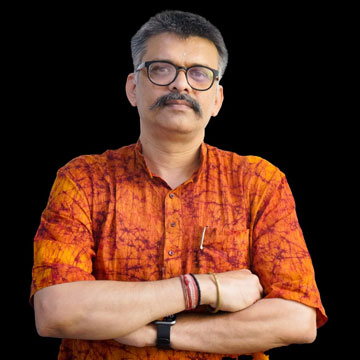“It is unfortunate that while terrorism remains unabated, destroying humanity and societies around the world, our efforts towards CCIT are constrained by narrow differences. We are not even able to define international terrorism. In this regard, there are templates, on which we can work on. For example, the OP3 of the UNSC resolution 1566 (2004), provide a comprehensive definition for international terrorism, which could be base for our further discussion. We urge Member States to take an objective approach and end the stalemate preventing the adoption of a Comprehensive Convention on International Terrorism (CCIT). India reiterates the need for early finalisation of Draft CCIT, and hope that the GA Working Group established for this purpose will bring finality in this regard”. – Bharat’s Statement on “Measures To Eliminate International Terrorism”, before the 6th Committee of the 78th Session of the UNGA (Agenda Item 109), Permanent Mission of India to the UN New York, October, 2- 3-4, October 2023
Israel’s elimination of the Hezbollah chief in a dramatic, well-planned operation was met with a swift and aggressive response from Iran, virtually opening another war front in West Asia. Once again, the critical issue of ‘terrorism’ has taken centre stage. Until the world collectively dispels the myths and hypocrisy surrounding terrorism, we cannot effectively address this global challenge to peace and security.
The attack by Iran on Israel exposes the first myth that terrorist organisations are non-state actors. If Hezbollah has been non-state actor, then why does Iran have to respond? It is nothing but an admission by Iran that the terrorist organisation is its creation. Does not that apply to Houthis also? Pakistan has been the epicentre of many such organisations and conveniently takes a shield of labelling them as independent state actors. The Western world conveniently gives cover to such states unless their interests are impacted, as happened in case of 9/11. Till then, Taliban was a non-state actor. As Minister of External Affairs of Bharat Dr S Jaishankar argued, “Many countries get left behind due to circumstances beyond their control. But some make conscious choices with disastrous consequences”. He further added, “A premier example is our neighbour, Pakistan. Unfortunately, their misdeeds affect others as well, especially the neighbourhood. When this polity instils such fanaticism among its people, its GDP can only be measured in terms of radicalisation and its exports in the form of terrorism”. None of the non-state actors can function without some nation-state’s active support and abetment. Unless we get rid of this hypocrisy over the nature of terror fronts of various states, we cannot deal with the menace of terrorism.
Terror has no ideology or religion is another myth persisted by intellectuals and politicians all over the world. Why are Islamists, all over the world, protesting against the killing of Hassan Nasrallah, a Lebanese politician, the cleric who served as the Secretary-General of Hezbollah? The religious supremacist ideology that denies the right to existence to others conveniently propagates countries like Israel as an aggressor while terrorist organisations as forces of resistance. Calling out the ideological forces and their political inspiration for violence is the pre-condition to deal with the terrorist outfits.
Financial networks harbouring and abetting these terror networks are well known. The drugs and weapons lobbies that are sustaining through these processes are also identified but protected by the proponents of democracy. Blocking this illegal supply chain is the best guarantee to secure genuine legal business supply chains. These series of conflicts in West Asia will have a spiral impact on the entire world. The cycle of depression started in 2008 and aggravated after Covid-19 is not under control, further fuelling unrest and protests worldwide. The ultimate beneficiary is the alternative authoritarian models. Technological changes are further giving newer tools to terrorist organisations.
It is imperative that Western democracies unite in this fight. Instead of being swayed by divisive narratives and fake reports, the American establishment should call out the religious supremacist attitude of countries that promote terrorism. The United Nations system, as it stands, has failed to reflect global realities. The future of global peace hinges on our collective readiness, as humanity, to dispel the myths and hypocrisy surrounding terrorism. Otherwise, the world is at war and heading towards more conflicts and uncertainties.




















Comments